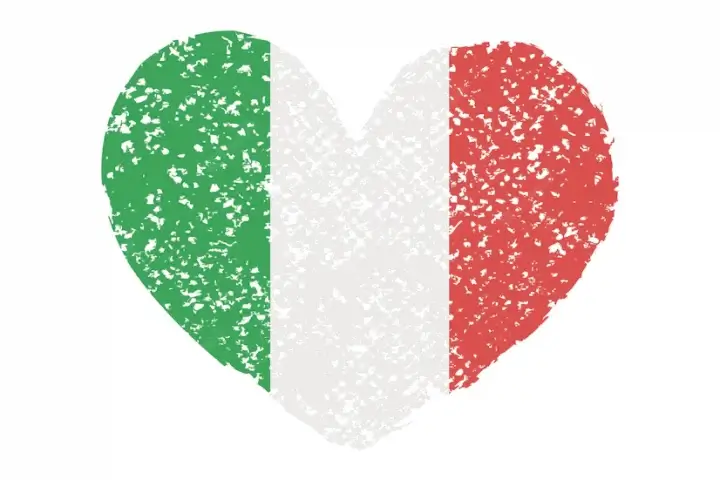This is definitely a gateway question, in that it’s one of those questions that leads to lots of other questions! In this article, we will clarify the pronuncation of “Ciao” as well as some other Italian words, but also provide you with some guidelines on how to understand other unknown vocabulary!
Some work on on this has already been done. For example, if you need help with vowels, dipthongs and consonants, please check out our article on Italian prounciation.
In this article, we will often reference the International Phonetic Alphabet for Italian, a recognized set of international symbols for clarifying the exact pronunciation of a foreign language.
So, let’s begin.
How do you pronounce “Ciao”?
The pronuciation of “Ciao” is /tʃau/. The /tʃ/ symbol is the IPA symbol for the “CH” phoneme in English. The /au/ symbol is the same as the “ow” in the English word “cow”. So, “Ciao” is basically pronounced like the English word, “Chow,” as in “Chow time!” or “Let’s chow down.”
But what does “Ciao” mean exactly? “Ciao” is an informal greeting in Italian, which means both “Hello” and “Goodbye.” It is important to note that you would not use this greeting with someone you have just met or to a clerk in a store or a waiter in a restaurant. It would be perceived as over-friendly, kind of like if you went into a shop and said, “Hey, there, what’s up?”
The meaning of “Ciao” is “Hello” and “Goodbye.” Simple, right? What’s interesting is the origin story of “Ciao,” which is thought to come from the old Venetian dialect for “I am your slave.” “I am your slave” was a way of signalling deference, similarly to when we say, “Please, consider me at your disposal for anything you may require.” So, not “I am your slave” in a literal sense at all!
As time went on, then, it got shortened and entered the general Italian vocabulary in its current form “Ciao.” And now, it is used by speakers of about twenty different languages from all over the world to mean either “hello” or “goodbye” or both.
The Pronunciation of “C” in Italian
The “C” + “i” / “C” + “e” rule
In Italian, the letter “c” is pronounced as a hard sound – /k/ as in “Cat” – unless it is followed by the vowel “i” or “e.” Followed by the letters “i” or “e“, the sound of the “c” changes from /k/ to /tʃ/ (the “ch” sound in English).
The pronunciation of “Ci” in Italian. Examples of “C” + the letter “i”
Cina – Meaning in English “China”; pronunciation /tʃina/ (“chee-nah”).
Cin-cin – Meaning in English “Cheers”; pronunciation /tʃin tʃin / (“cheen – cheen”).

Cibo – Meaning in English “Food”; pronunciation /tʃibo/ (“chee-boh”).
Gucci – The name of the famous fasion house; pronunciation /gutʃiʃii/ (“gooch-chee”).
Bacio – Meaningi in English “Kiss”; pronunciation /batʃio/ (“bah-choh”).
Cielo – Meaningi in English “Sky”; pronunciation /tʃielo/ (“chee-el-oh”).
The pronunciation of “Ce” in Italian. Examples of “C” + the letter “e.”
Cesto – Meaning in English “Chest”; pronunciation /tʃesto/ (“cheh-stoh”).
C’è – Meaning in English “There is”; pronunciation /tʃei/ (“chay”).
Cento – Meaning in English “One hundred”; pronunciation /tʃento/ (“chen-toh”).
Cera – Meaning in English “Wax”; pronunciation /tʃeira/ (“chay-ra”).
Cera – Meaning in English “Wax”; pronunciation /tʃeira/ (“chay-ra”).
Cena – Meaning in English “Dinner”; pronunciation /tʃena/ (“chay-na”).
But what about the “h”?!
That’s right! In Italian there are a lot of words with “i” or “e” followed by a hard c, such as in “Chilo” (kilo), but what you’ll notice is that Italians snuck an “h” in there! That’s right, put an “h” between “c” and “i” or “c” and “e” and it turns the “c” into a hard sound.
The pronunciation of “chi” in Italian. Examples of “C” + the letter “h” + the letter “i”
Chi – Meaning in English “Who”; pronunciation /ki/ (“kee”).
Bacchi – Meaning in English “Berries”; pronunciation /bakki/ (“bahk-kee”).
Chitarra – Meaning in English “Guitar”; pronunciation /kitarra/ (“kee-tahr-rah”).
Granchio – Meaning in English “Crab”; pronunciation /grankio/ (“grahn-kee-oh”)
Chiaro – Meaning in English “Clear”; pronunciation /kiaro/ (“kee-ar-oh”).
The pronunciation of “che” in Italian. Examples of “C” + the letter “h” + the letter “e”
Che – Meaning in English “What”; pronunciation /kay/ (“kay”).
Bocche – Meaning in English “Mouths”; pronunciation /bokke/ (“bohk-kay”).
Chitarra – Meaning in English “Guitar”; pronunciation /kitarra/ (“kee-tahr-rah”).
Cheltico – Meaning in English “Celtic”; pronunciation /keltico/ (“kehl-tee-koh”)
Chianti – Meaning in English “Chianti”; pronunciation /kianti/ (“kee-ahn-tee”).
The pronunciation of “SC” in Italian
The “Sc” + “i” / “C” + “e” rule
When the letter “c” follows the letters “Sc,” it has a hard sound, as in scuola (school), Toscana (Tuscany), scandolo (Scandal), but when the “Sc” is followed the letters “i” or “e,” that’s when things really change! The “Sc,” in these cases, is pronounced /ʃ/, or the sound that we make in English when we read the letters “SH.”
The pronunciation of “sci” in Italian. Here are some examples of words with “Sci” in them
Sciare – Meaning in English “Ski”; pronunciation /ʃiare/ (“shee-ah-ray”).
Scivolare – Meaning in English “Slip”; pronunciation /ʃivolare/ (“shee-voh-lah-ray”).
Liscio – Meaning in English “Smooth”; pronunciation /liʃo/ (“lee-shoh”).
Uscio – Meaning in English “Exit”; pronunciation /uʃo/ (“oo-shoh”)
Esci – Meaning in English “You leave”; pronunciation /eʃi/ (“eh-shee”).
The pronunciation of “sce” in Italian. Here are some examples of words with “Sce” in them
Scendere – Meaning in English “Descend/Go down”; pronunciation /ʃendere/ (“shen-day-ray”).
Conoscere – Meaning in English “Know”; pronunciation /konoʃere/ (“co-noh-shay-ray”).
Scena – Meaning in English “Scene”; pronunciation /ʃena/ (“shay-nah”).
Pesce – Meaning in English “Fish”; pronunciation /peʃe/ (“peh-shay”).
Scelgo – Meaning in English “I choose”; pronunciation /ʃelgo/ (“shell-goh”).
Osceno – Meaning in English “Obscene”; pronunciation /oʃeno/ (“oh-shay-noh”).
Finisce – Meaning in English “He finishes”; pronunciation /finiʃe/ (“fee-nee-shay”).
Quote Request
Contact us immediately for a quote.






